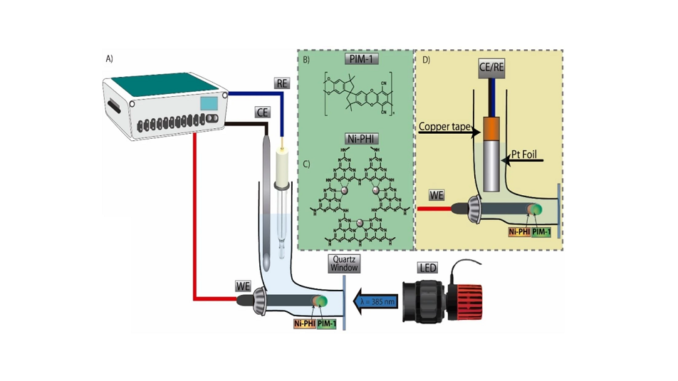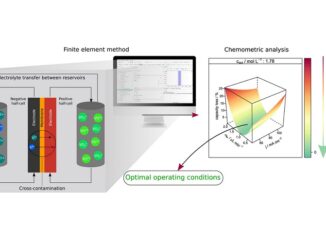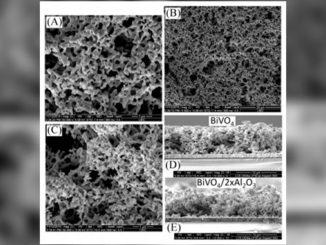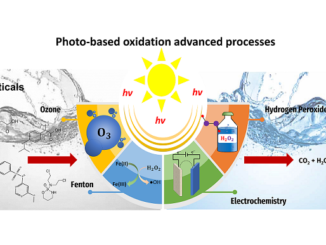
Hydrogen-Mediated Photoelectrocatalysis with Nickel-Modified Poly(Heptazine Imides)
Abstract: Polymeric carbon nitrides (C3N4) are photochemically active organic semiconductors that can be produced in a wide range of structural types. Here, a poly-(heptazine imide) containing nickel single atoms (Ni-PHI) is employed for photochemical hydrogen production and is compared to the non-nickel-doped semiconductor. Film deposits are formed on a platinum disk electrode (to detect hydrogen) and a coating of the molecularly rigid polymer of intrinsic microporosity PIM-1 is applied to (i) mechanically stabilize the photo-catalyst film without impeding photocatalysis and (ii) assist in the interfacial hydrogen capture/oxygen suppression process. In the presence of hole quenchers such as methanol or ethanol, anodic photocurrents linked to hydrogen production/oxidation are observed. A comparison with an experiment on glassy carbon confirms the formation of interfacial hydrogen as a mediator. The effects of hole quencher concentration are evaluated. The system Pt/Ni-PHI/PIM-1 is employed in a single-compartment photo-fuel cell.
Author(s): Sirlon F. Blaskievicz, Ivo F. Teixeira, Lucia H. Mascaro, Mariolino Carta, Neil B. McKeown, Yuanzhu Zhao & Frank Marken
Electrocatalysis
Published: 11 November 2023
DOI: https://doi.org/10.1007/s12678-023-00852-9
CDMF
The CDMF, hosted at the Federal University of São Carlos (UFSCar), is one of the Research, Innovation and Dissemination Centers (RIDC) supported by the São Paulo State Research Support Foundation (Fapesp), and also receives investment from the National Council Scientific and Technological Development (CNPq), from the National Institute of Science and Technology of Materials in Nanotechnology (INCTMN).




